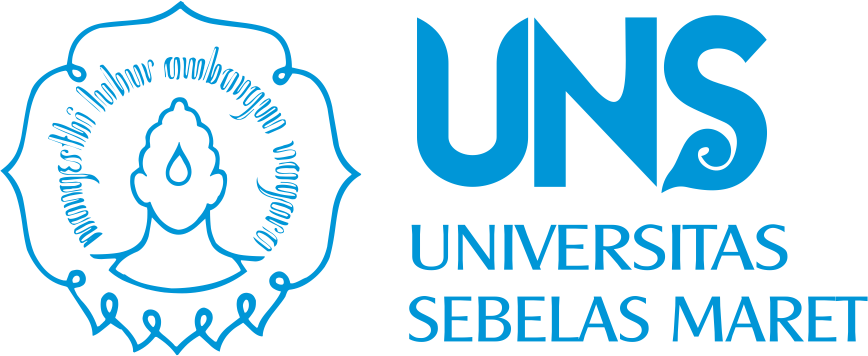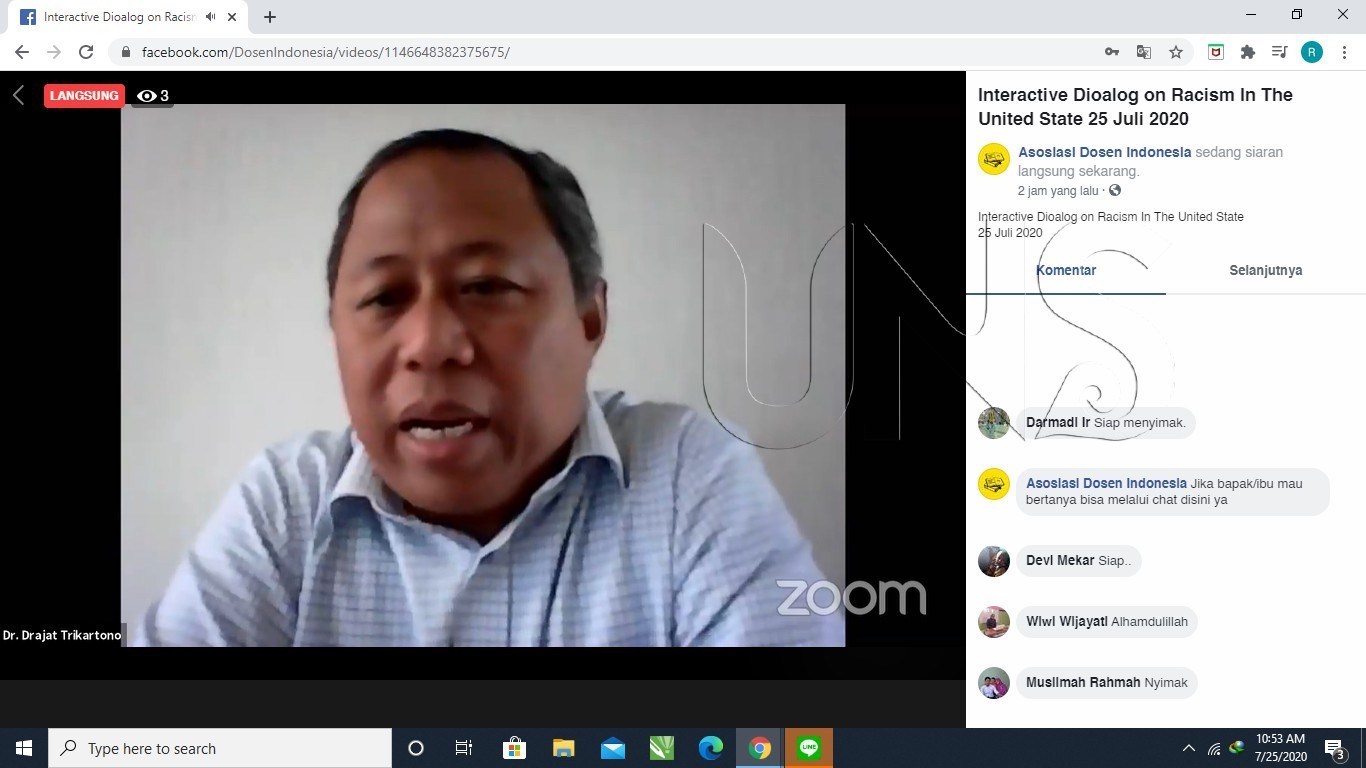UNS – The sociologist of Universitas Sebelas Maret (UNS) Surakarta, Dr. Drajat Trikartono delivered his view on the racism in the US, Saturday (25/07/2020). The agenda was held online through Zoom Clouds Meeting and live streaming in ADI Facebook by Indonesian University Teacher Association (Asosiasi Dosen Indonesia – ADI) and Task Force Education Indonesia Diaspora Network (IDN) – United. On the occasion, two diasporas from the US were invited as the speakers, Dr. Muhammad Ali from the University of California Riverside and Dr. Siti Kusujiarti from Warren Wilson College North Carolina. The event was led by Rezza Dian Akbar, S.IP., M.Sc., the Faculty Member of Sociology Program FISIP UNS
Before starting the discussion, Dr. Rachmadian Wulandana as the Director of Task Force Education Indonesia Diaspora Network (IDN) – United delivered an opening remark for the participants. Recently, the news outlets were flooded with the news on George Floyd and “Black Live Matters” campaign. There is various point of views around the topic and this agenda is expected to become a trigger for discussion and provides a different view from a sociology standpoint.
Opening the discussion with US history, racism can be traced back to the old history of the country. George Floyd case becomes a trigger which moves people to raise the racism issues in the USA. In addition to voicing the injustice received by George Floyd, the mass also destroyed several iconic statues in the US, one of which is the statue of Colombus. The protest has a very long power since America was founded or the memory of protest against injustice reached the US itself which explained their action of destroying Columbus statue.
Dr. Drajat explained that there needs to be an understanding between race and racism. The race is biological differences almost similar to the gender difference, an innate characteristic that cannot be rejected by somebody. The race has no components or differences that can bring a problem, but socially grow a stereotype in the community. The stereotype grew as the need of the community to determine one’s identity.
“Even though some of the identities are relative, in books and researches, a person rarely has a single identity. Someone always has more than one identity,” Dr. Drajat explained.
Further, the stereotypes are what created prejudices and assumptions in the community which when occurred continuously becomes a justification in the community and even affects the activities in a country as reflected in the prevailing norms. Thus, the race becomes a problem of racism. The US, which is generally known as a free and democratic country, is not entirely correct. The “Black Lives Matter” movement is a mark that the country is not fully ‘okay’. Tolerance has not been fully applied in the country. Dr. Siti Kusujiarti explained that the US has a highly heterogeneous community that came from diverse backgrounds which makes large numbers of norms to collide indirectly.
Competition between individuals is very tight, coupled with a thick concept of capitalism making its movements more rapid. People who cannot adjust to the condition will be left behind. The economic movement is one of the reasons that breed a gap which leads to racism. Many groups are living in the US but the issues surrounding black population, specifically, developed into a large problem. Dr. Muhammad Ali mentioned that three factors lead to this problem. First, this group and its descendants have lived for a long time in the US; second, they are physically different from the other groups, thus providing a means to differentiate them directly; lastly, it is related to the principles held by people who live in the country.
The participants were very enthusiastic in joining the interactive discussion by asking questions to the speakers. Dr. Siti Kusujiarti concluded that disparity still exists in various countries in the world. The problem needs to be addressed together and solidarity is needed to solve the problem. Dr. Muhammad Ali added that differences are assets and not threats or obstacles, thus, problems that lead to conflicts can be avoided. Economic improvement is one of the solutions to reduce the disparity that exists. HUMAS UNS
Reporter: Ratri Hapsari
Editor: Dwi Hastuti

